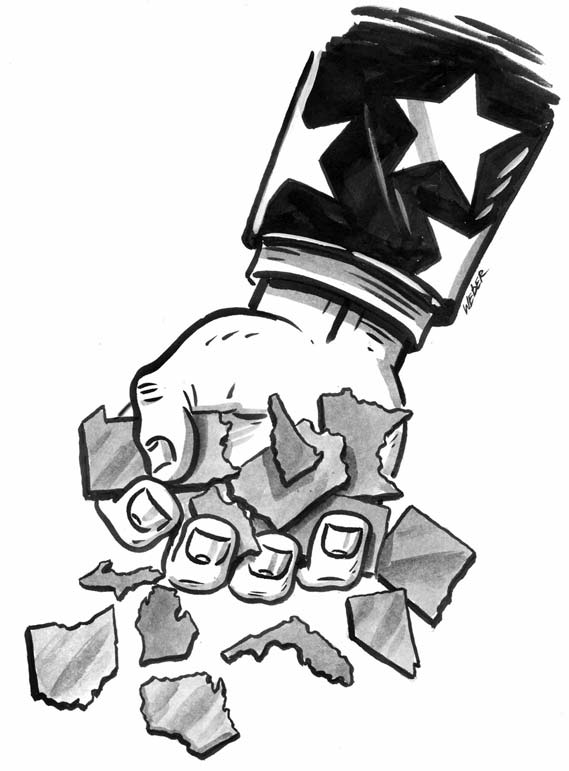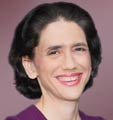
If you don't do very well ("very well" means different things for differently situated candidates, as I'll explain in a moment) in Iowa or New Hampshire, chances are that you're not going to win South Carolina, Nevada or many Super Tuesday states.
(Had Barack Obama not won Iowa in 2008 or Sen. John McCain not won New Hampshire, does anyone think they'd have been the nominees that year?) Normally, a top-tier candidate in an early state such as New Hampshire would be under huge pressure to win to avoid "on the ropes" headlines. In this case, though, former vice president Joe Biden, Sen. Elizabeth Warren, D-Mass., or Sen. Bernie Sanders, I-Vt., all have pressure.
(Biden because he is the front-runner, Warren because she is from Massachusetts and Sanders because he is from Vermont and won 60 percent of the vote in New Hampshire in 2016).
A close 1-2-3 finish for these candidates likely doesn't change the shape of the race. They will all continue for what could be a long, grueling process.
But a fourth-place finish or lower for one of those three could be devastating. Conversely, if a candidate such as South Bend, Indiana, Mayor Pete Buttigieg finishes in one of the top three slots or even a strong fourth, that person will get a lot of positive coverage.
If Sen. Kamala Harris, D-Calif., beats out one of the top three in an early state, she might be the "Comeback Kid," even if she doesn't win (as Bill Clinton was when he finished second in the 1992 New Hampshire primary).
Given that there is considerable overlap between Warren's and Sanders's views, the one who consistently finishes above the other in early states will have a strong claim to the "progressive lane."
So how are the candidates lining up in early states? In combined polling in Iowa, New Hampshire, South Carolina and Nevada, Morning Consult has Biden at 32 percent, Sanders at 19, Warren at 16 and Harris at 8.
The Suffolk University-Boston Globe poll of New Hampshire shows Biden at 21, Sanders at 17, Warren at 14 and Harris at 8, followed by Buttigieg at 6.
(It's noteworthy that more than 60 percent want the candidates who don't qualify for the next debate in September to drop out.)
Iowa has been lightly polled, but when CBS News-YouGov polled July 9-18, Biden was leading at 24 percent, followed by Sanders at 19, Warren at 17 and Harris at 16. (This poll was taken after Harris's big poll bump following the first debate.)
What does all this tell us?
First, the numbers are remarkably consistent across polls, and the race hasn't changed much after two rounds of debates.
The same five candidates (the Big Three, Buttigieg and Harris) appear at the top of all these early contests' polls.
If someone else breaks into that group in Iowa (say, Sen. Amy Klobuchar of Minnesota, Montana Gov. Steve Bullock or former congressman Beto O'Rourke of Texas), all bets are off, but if the candidates finish bunched up in the same Biden-Sanders-Warren-Harris-Buttigieg order, it's hard to see why all five wouldn't remain in the race and hope for the best - maybe even (you guessed it!) a brokered convention.
That said, the bigger the gap between the fifth- and first-place finisher, the more pressure builds on the fifth-place finisher to drop out, or maybe form a ticket with one of the top finishers.
So does that mean the debates and everything going on now are meaningless?
Well, not entirely.
Buttigieg has gotten himself into the bottom of the top tier, no easy feat for a mayor of a city with just over 100,000 residents. But other than that, one might expect that not much will change before 2020, when the field likely gets down to seven or eight candidates.
A string of wins (even close ones) in all the early states might bring the race to a quick end. However, it's quite possible that five or so candidates will be at this for a very long time.
A genuinely close race with no clear front-runner might spur Democratic voters' interest and turnout, and that might prove to be a sizable advantage in November 2020 for the eventual Democratic nominee.
Sign up for the daily JWR update. It's free. Just click here.
(COMMENT, BELOW)


 Contact The Editor
Contact The Editor
 Articles By This Author
Articles By This Author